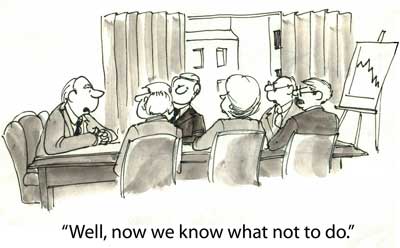Categories
Archives
Search
Subscribe to Our Monthly Digest
Category: Leadership

The #1 way to strengthen trust…
This past Sunday we attended our usual church service, and after the service ended we began filing out to return to our homes and enjoy the rest of our Sunday. As we were walking towards the door, my wife Joyce turned around and went back to talk to a member of the Praise Band. His name was Gary, and Joyce went over to express her sympathy. Gary’s mother-in-law had just passed away. As I was waiting for Joyce, the minutes started passing by, and before long I realized Joyce and Gary were in a long conversation. Gary’s mother-in-law was very special to him, and he wanted to talk about her. My wife is a good listener, and she is always there for people to listen to them and bring them comfort.
I must confess my initial reaction was impatience…You know…”C’mon, we haven’t got all day” default. That thought quickly passed as I reminded myself that what I was seeing was my loving wife doing what she was meant to do: Give comfort and take time to listen to those who need a sympathetic ear. I went back in the narthex and found a devotion book I could read until Joyce was finished. If the truth were known, Joyce’s conversation with Gary was probably about 10 minutes.
We want to have strong relationships with the special people in our lives. If we run a business, we want our team members to be productive and give us their best. One of the best actions we can take to achieve these objectives is to take more time to get in touch with others, and be a sincere and sympathetic listener.

To win, we must stop losing (people)
You would think the #1 priority in these times is sales. In my coaching and interactions, I am noticing an area even more important: Employee retention.
Experts struggle to accurately gauge the cost of employee turnover. There are many repercussions. Customer relationships can be affected, training expenses increase, and employee morale and engagement can be dampened.
Early in my career I had a job in selling. One day I was calling upon two large companies. In each visit I took the opportunity to talk to the receptionists. In each conversation I asked the same question: “What’s it like to work at _______?” In company “A”, the response from the receptionist was ebullient. She began raving about how much she enjoyed working there. She took out pictures of herself at company events having a blast. She showed me her special recognition pin. As my mother would say, “Who put a nickel in you?”
Then there was company “B”. Her response to my question was quite different. She glanced around giving a furtive look and said, “Do you really want to know? They don’t tell us anything. We’re just supposed to do our job and keep quiet. We just work here.” Ouch. No boss would want to hear that.
So what happened to company “B”? Was there poor communication, a lack of respect, or not much empathy? Probably all of those and a few more. Comparing companies “A” and “B”, which one do you think had the least turnover? What one made the most profit? If you guessed “A”, you are correct.
When I coach teams for improved performance, the first thing I look for is the trust level and how important each team member sees themselves. If you want a strong team, you should too!

Effective leaders are good repeaters
“Men must be taught as if you taught them not, and things unknown proposed as things forgot”
-Alexander Pope
Have you ever heard someone say, “I told them once and I shouldn’t have to tell them twice!”? In his book, “The motive”, Patrick Lencioni makes the point that CEOs often need to be “CRO’s. That means Chief Repeating Officer.
When I was in my early 20’s, I was going through sales training. I was fortunate to have a mentor coach who truly cared about me and wanted me to succeed. Like any good trainer, Mark believed in sticking to the fundamentals.
For my first couple months, Mark joined me on my sales calls. There were several instances where I overlooked a fundamental he had already taught me, and that weakened my sales presentation. After each call we would do a brief review. When Mark needed to correct me, he did so as if it were the first time he was telling me. He didn’t start out with, “Look Steve, like I told you before… Instead he simply repeated the fundamental as if it was the first time I had been told. I will never forget his caring and gentle persistence. Hardly a day goes by that I don’t remember Mark and something he taught me…with relentless tenacity. If we want to be strong coaches we need to stay in there with people and utilize the power of repetition.

A professional approach that builds trust
Here’s a question for you: What is the difference between “nagging” and “gentle persistence”? I am not sure I have the exact answer. I do know that when someone nags me, I can get irritated, yet if they persist in a gentle and gracious way, I am much more motivated.
A couple years ago I sent an email to a person in a marketing company. He was doing a project for me, and I had something I wanted to add. When I wrote Jason, I forgot to copy the president – something which I had agreed to always do. A short time later, I received this email from the president:
“Hi Steve: Just a friendly reminder to “cc” me when requesting projects from the staff. I really don’t mind, but if I know they are working on a project for you, I won’t interrupt them with other projects if i can avoid it. Thanks, J
I was impressed. Not only was the approach friendly and respectful, she took the time to state the WIFM. (What’s in in for me) I was not upset by this email. Quite the contrary, I was upset with myself for the error of omission. I promised myself I would stick to my commitment and always “cc” the president. I have kept that commitment.
This was a good approach that received my full cooperation. What if the email had a nasty tone like “As mentioned previously, I expect a “cc” when…” The president chose the high road. She was probably irritated that I forgot, then quickly shifted to solving the problem. That’s professionalism!

Growth-oriented teams are not afraid to make mistakes
Several years ago I was working with a successful business owner (Joe) who was looking to expand his business considerably. He knew that meant hiring more people, and counting on them to be an extension of his beliefs in hard work, integrity, and doing things with excellence.
 Moving forward, there was one thing that bothered Joe…Mistakes! When members of his team made a mistake, there was a tendency to blame others, make excuses, or “sugar coat” things. When any of these things would happen, solving the problem would become more difficult and the consequences would be more serious. Joe asked me to help him understand the resistance of his team members to own up to mistakes and report them quickly.
Moving forward, there was one thing that bothered Joe…Mistakes! When members of his team made a mistake, there was a tendency to blame others, make excuses, or “sugar coat” things. When any of these things would happen, solving the problem would become more difficult and the consequences would be more serious. Joe asked me to help him understand the resistance of his team members to own up to mistakes and report them quickly.
After talking with Joe’s team members, the cause of this problem became very apparent: Joe’s team was afraid to admit it when they made a mistake, and this fear caused them to hesitate coming forward. Joe is a “right-right” person and when his team members fell short with a customer, he would go into a fit.
When I reported my findings back to Joe, he said, “When I have a tantrum, I am not upset at someone, I am just mad we fell short with a customer.” I replied, “That may be so, but your people think you are mad at them.” Problem solved! We had a team meeting and Joe explained to his team what he had told me. His staff agreed to give Joe permission to have a tantrum when a mistake was made. Once he is finished letting off steam, they all get busy and solve the problem. Joe’s people are now quick to own up to to their errors and communicate them right away. These changes have led to a stronger, more confident, and collaborative team. They also have more fun!
